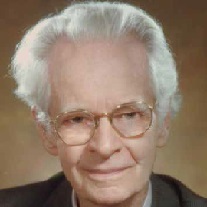by
Sean Ruck, Contributing Editor | March 23, 2016
From the March 2016 issue of HealthCare Business News magazine
Burrhus Frederic Skinner was born in Susquehanna, Pennsylvania, on March 20, 1904. Known by those in the psychology field as the “father of operant conditioning,” Skinner is better known by many Americans as B.F. Skinner. Skinner started his education as a student at Hamilton College. After graduation at 22, he dabbled in writing as a profession, but when that didn’t work out he decided to go back to school to study psychology. He enrolled at Harvard, where he earned his doctorate. It was also at Harvard where he would develop his theory of operant conditioning.
Picking up behaviorist research, a field left with a significant hole when John Watson ceased academic research in 1920, Skinner had markedly different ideas about how learning occurred and how behaviors were formed. His concept of operant conditioning was based on the idea of action and consequence.
Skinner wasn’t the originator of this idea, as he built some of his theorizing upon the work carried out two decades prior by Edward Thorndike. Unlike Thorndike, however, Skinner was able to bring his ideas to audiences outside of academia. Skinner developed a box, now known as the Skinner Box, which allowed him to observe animals interacting with their controlled environment. He introduced a reward system that doled out food for the animals — first for rats and in later experiments, for pigeons. The pigeons learned that by pecking on a disc, they would release food. This form of action and consequence was refined and Skinner wrote about his research in his book The Behavior of Organisms. Skinner theorized that learned behavior needed some type of consequence, or reinforcement, to solidify that learning.
Skinner continued to work in the psychology field, teaching at the University of Minnesota for a short time, then chairing the psychology department at Indiana University. After just a few years, however, he made his return to Harvard as a lecturer, and it was the institution where he would spend the rest of his long career.
Skinner’s work had its detractors — some compared his work to that of Pavlov, but he took care to clarify that his belief was that an action and reward, rather than passive input from a subject’s surroundings, was key to ingraining a new learned response. Unlike Pavlov’s dogs, which salivated upon hearing the bell, Skinner’s pigeons (and the rats before them) would take an active role in achieving a reward. While Skinner saw potential positive applications for this idea of positive reinforcement, in particular in the field of teaching, he came under fire by some who interpreted his work as proposing the idea that humans, or any animal for that matter, had no free will or conscience that wasn’t reliant on outside stimuli (even if it was an active interaction with those stimuli). Skinner wrote About Behaviorism to try to clarify his position.
However, it was a different book by Skinner that likely damaged his authority in the eyes of some. His book Walden Two was a novel that used his theories as the basis for its plot — it presented a utopian world where citizens were good due to a system of punishment and reward. The idea of a non-academic piece using theorized concepts didn’t sit well with some of his colleagues. Skinner did leave the world of fiction writing, and in particular toward the end of his life, he wrote autobiographies and continued to research behavioral psychology.
Skinner was diagnosed with leukemia in 1989 and died a year later. Today, while some of his theories don’t enjoy the level of attention they did during his lifetime, some have found their niche. For instance, positive reinforcement is a tool for success in many of today’s schools. And as medical professionals know, with the introduction of the Affordable Care Act, there’s certainly something to be said for a system of positive rewards and negative consequences when it comes to shaping behavior.
